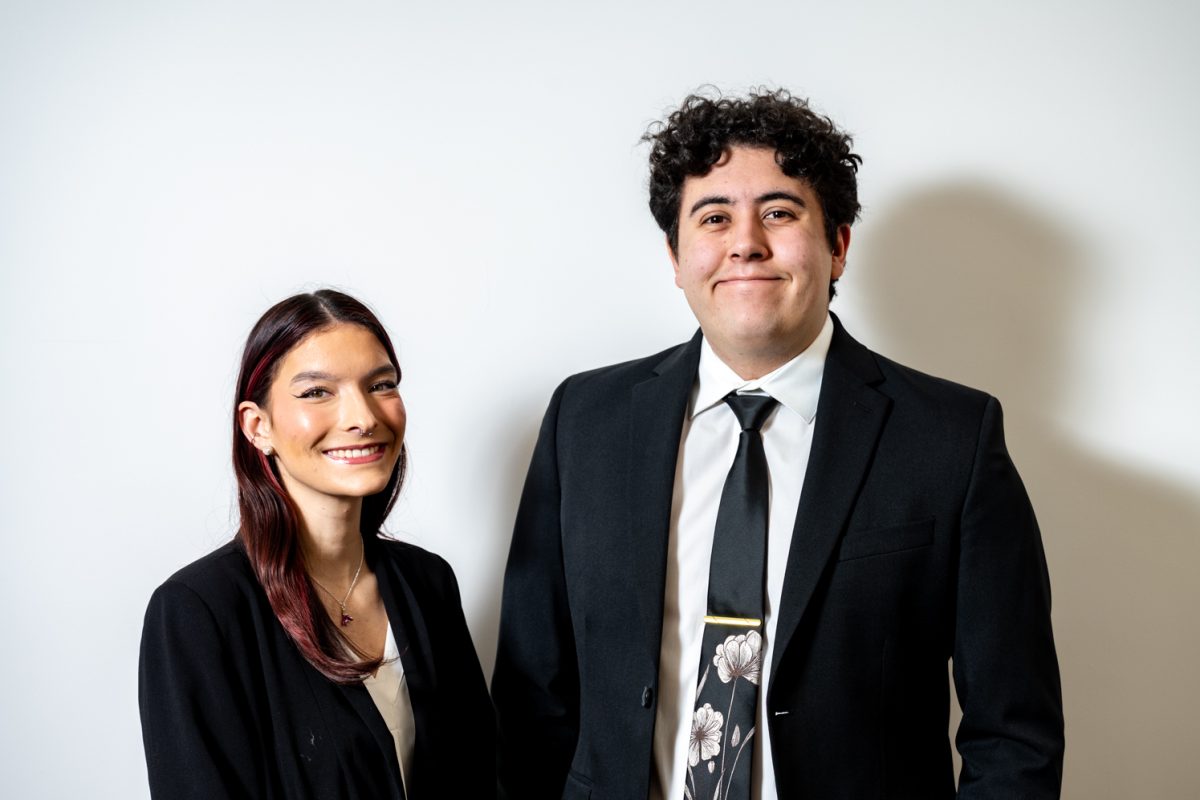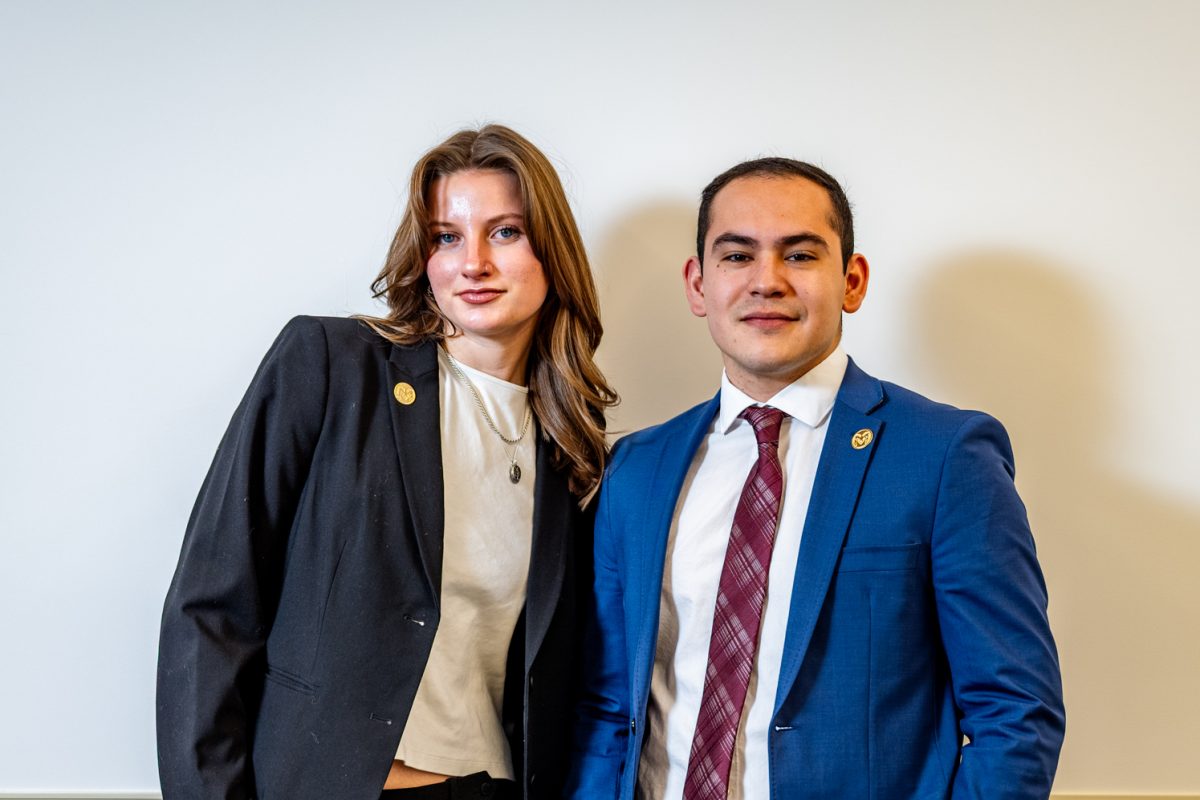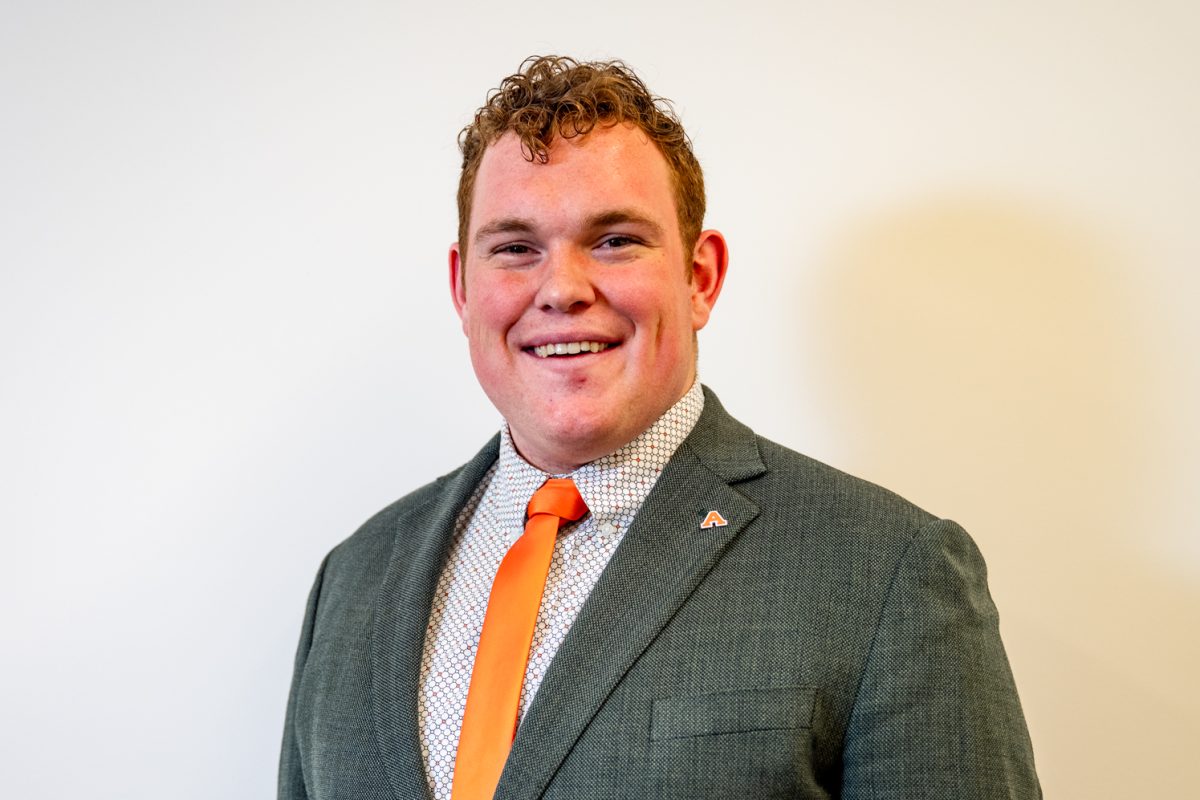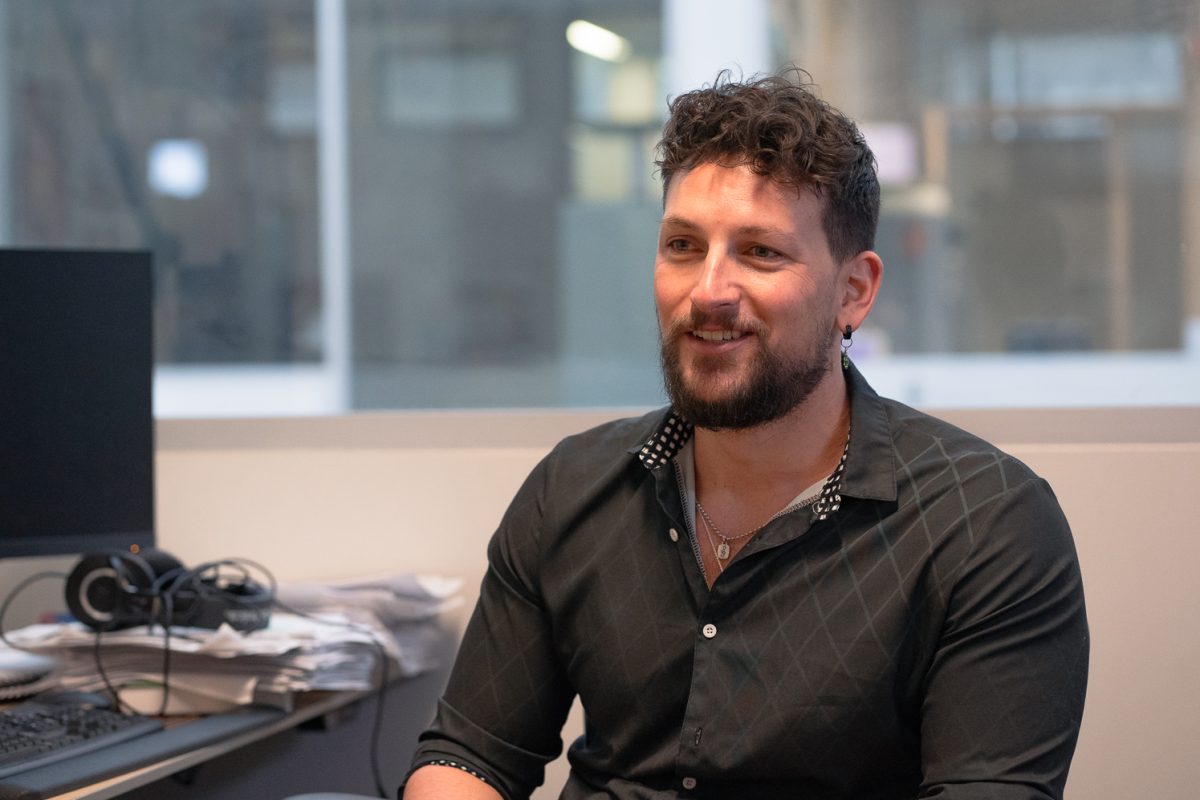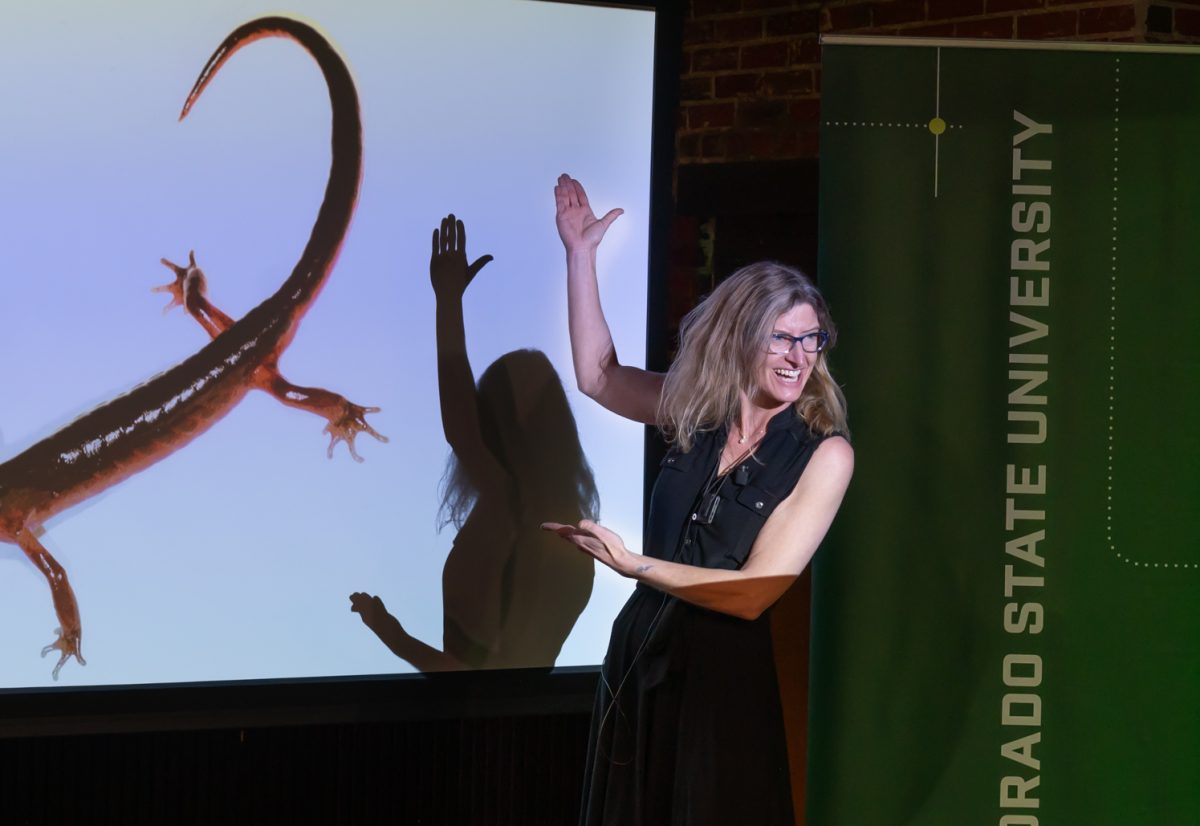Sometimes a Hollywood film screening can open up much deeper discussions.
Colorado State University’s Geosciences club and chapter for American Association of Petroleum Geologists hosted CSU alumni Greg Cudney and Ernie Brown for a screening and discussion of the Hollywood film “Deepwater Horizon.”
The movie focuses on the 2010 BP Gulf Coast oil spill following the explosion of the Transocean Deepwater Horizon oiling rig.
“We’re here to explain the technical issues and to help them understand what the real facts were. We want people to delve into the real issues of what happened and why they happened. That’s what matters most tonight.”
Greg Cudney, former Schlumberger engineering executive
Students interested in a future with the geology or energy industries attended the screening Wednesday evening to understand and discuss the technical side of the oil spill.
As former engineering executives at Schlumberger, the world’s largest oilfield service company, Cudney and Brown led the students in conversations about the causes of the spill, as well as the impacts the event had on the industry’s practices.
The two also made a point to focus on the future possibilities for students studying geology.
“We want to get future geologists to understand some of the roles they can have in their industry,” Brown said. “We’re using a real-life event and a real-world disaster to help them understand what these future positions and experiences might end up being.”
Cudney shared a similar perspective, focusing on the possible circumstance for such students’ futures.
“Students don’t always know what opportunities lie in their life or in their future,” Cudney said. “They don’t know if they might be dealing with something like this in their life and we want to have that discussion.”
Andrew McCarthy, treasurer for AAPG, said that, despite the focus on geologists, the event was advertised to anyone who was interested.
“This was a national and even international event,” McCarthy said, referring to the oil spill. “Everyone has a stake in this and in the oil industry.”
Cudney agreed that the screening and discussion of the oil spill was a good opportunity to get other students interested in the industry.
“This was the biggest disaster in the oil industry as far as loss of life and money,” Cudney said. “People know that so this was a good way to get more enthusiasm for our industry.”
Cudney and Brown offered explanations for both technical and dramatized scenes, recounting actual events alongside the movie’s storyline and answering questions along the way.
Mostly, the two discussed the main issues during the BP oil spill in hopes they won’t be repeated.
“These guys were way behind in their drilling curve and spending way too many days on the rig site,” Cudney said in reference to the workers on the rig. “They took some shortcuts and that’s one of the major technical reasons why it happened and it’s something we really want to highlight. They had a bit too much confidence and it led to a series of mistakes and incidents.”
Other issues were highlighted, such as two worrying test results being overlooked, Brown said.
“There are things that are critical that got overlooked,” Brown said. “There were also conflicting pressures on the workers. In real life, when you have those pressures you get conflict. You don’t know what’s right and that’s one of the things that happened here.”
Throughout the screening, Cudney and Brown would pause the movie to answer questions and to explain scenes. The two said they wanted to emphasize the reality of what occurred.
“Being a Hollywood movie, there’s going to be drama and that might be the only thing people see,” Cudney said. “We’re here to explain the technical issues and to help them understand what the real facts were. We want people to delve into the real issues of what happened and why they happened. That’s what matters most tonight.”
Collegian reporter Charlotte Lang can be reached at news@collegian.com or on twitter @chartrickwrites


